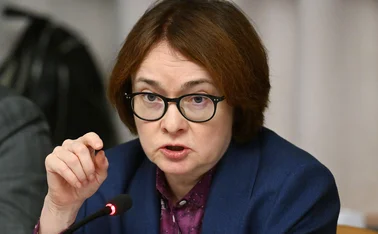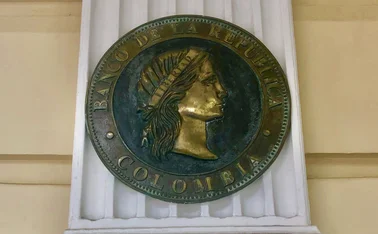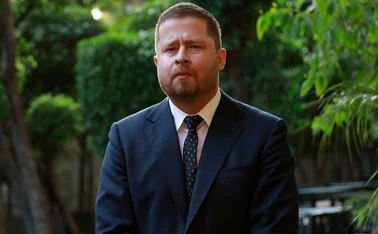
Paul Volcker on inflation, QE exit and monetary system flaws
Former Fed chair talks about his policy actions and the challenges ahead

It took time for the Fed’s monetary policy actions under your leadership in 1979 to achieve their iconic status; what is involved with the leadership of a central bank, both to understand the issues and to bring people with you?
There was a feeling in the country that inflation was getting us by the throat, the economy was not doing very well and stagflation – the very word was invented – was getting worse. People were speculating in commodities, diamonds, gold and so forth, and there was a feeling that something was wrong, which gave me a platform for doing something. In ordinary circumstances, people do not want to be upset or go off into new areas with unknown consequence, because things are not that bad. In a way, it is easier to deal with the situation when there is a strong consensus that something is the matter.
Things were very tough and I am not arguing everyone was cheerful about the action, but they were tolerant in a way that would not have been possible under other circumstances. We built upon this idea that inflation had something basic to do with the amount of money – an understandable concept. You tell people even today, ‘we’re going to deal with inflation by raising interest rates’. They will say, ‘that is crazy – raising interest rates is a cost. It will add to inflation’. So what we did was we shifted the emphasis of the policy to concentrate on money, which Milton Friedman had helped lay the groundwork for. At the end of the day, you have to cut the money supply to deal with inflation. Simple concept, most people understood. That is what held the committee together. They had not been willing to raise interest rates any more – which we had done three times in a row, with no psychological impact. What really triggered the action was, last time we raised interest rates there was a 4:3 vote on the board. And all the market commentary was: ‘well that is the end of it – they only have 4:3 votes. They do not have enough votes for another change of interest rates. The Federal Reserve is impotent.
Some people started to say: ‘this is going too far’ – there must have been heavy pressure on you. Long-term interest rates stayed high for a very long time. How did you manage that?
When we did this in October 1979, we knew short-term rates were going to go up, but we did not know how high they were going to go. You had the thought though, that if people believed you were going to make progress, long-term rates would not go up and might even go down. Well, that was a foolish thought – long-term rates went up just as fast as the short-term rates did! There was no confidence left at that point. It took a couple of years to change that expectation. The recession got prolonged and deep in 1982, and there was a real question: why are we persisting? But there was no clear evidence at that point that inflation was going down. The money supply had not gone down. How could we ease policy when the money supply remained so high? By the middle of the year there was evidence of the money supply coming down and inflation coming down, so then we eased and the market took off.
The policy embodied your deep conviction in the virtues of stability: stability in exchange rates, stability in the banking system. These threads run through your career and the battles you fought. Today central banks are dealing with diverse problems – how do you assess the situation?
I have been puzzled by the reaction that has taken place in a lot of countries to the recent move by the Federal Reserve, that somehow they have not consulted, not co-operated, etc. What are they talking about? The Fed took the smallest possible move, which in any analytic sense was not going to affect anything much. You cannot consult with countries around the world to make a tiny change to the policy approach. What is going on here? What is going on is we have open financial markets, open trading markets; we have financial markets that are more open than trading markets. National boundaries begin to not be relevant in one sense, except they are independent countries with independent currencies. You get volatility in capital flows that are extraordinary, and extraordinarily large in relation to many economies. Capital flows mean nothing to the US, to the eurozone, but they can mean a lot to a country with very small markets. And what do you do about that? It reflects the way the current financial system is.
It also reflects that there has been little attention to whether we have an international monetary system that makes sense in today’s world. I am one of the few people worried about this. We have not learned how to live with volatile capital flows that will respond to small, almost insignificant, changes in terms of big countries, but which are very upsetting for small countries and small markets. I was in Asia last week [early March] and it struck me that Korea, which is a sizeable economy, was hard hit by the Asian financial crisis in the 1990s. Korea did not expect to get hit. They were hit. They got rescued. They learned a lesson: ‘we are going to be careful enough, and fearful enough, with our financial policies, so that we are not going to get overwhelmed by someone else’s problems that produce a volatile capital flow’. There were no complaints from Korea about the recent action by the Fed, but there were from other countries that were not as well prepared.
Let me talk about big countries – the US and China. I sat there in the early part of this century thinking: ‘what are we doing?’ China and Japan are running these big surpluses, we are running these big deficits, nobody gives a damn because it is convenient, provides a boom in our housing market, provides exports for China, so nobody wants to do anything. And there was nothing in the system to say anyone had to do anything! It was a contributing factor to the blow-up. Is that the system we want to live with? I do not think so, but nobody is prepared to look at it.
Presumably you would have supported those central banks that felt they had to do whatever they could to maintain the money supply. But they have gone so far with quantitative easing that many view it as an immense gamble – how will it all end?
I guess we are all prisoners of our own generation. I was actually alive in the Great Depression, although I was not exactly a fully formed adult. I happened to be living in a particular place in the US that was not much affected by the depression. But in my adult life, I have never spent a day worrying about deflation. I want to go back and criticise policy-makers, who were so absorbed with an imaginary fear about deflation a decade or 15 years ago, that they maintained policies that, it turned out, were overly stimulative, overly easy, and they ended up with a big financial problem that finally raised some legitimate questions about deflation.
Japan is everybody’s whipping boy. ‘They did not know what they were doing, they sat around doing nothing’, people say; we forget Japan invented quantitative easing 10 years ago and decided it was not effective. But Japan suffered an enormous shock; the real estate market declined by three quarters, the stock market declined by about three quarters. It was twice as big a shock as we went though in the US. The Japanese population is declining – the labour force is declining by about 1% a year. Now ours goes up by about 1% a year, so on a per capita basis we have to grow about 2% faster than Japan to stay equal on presumably what counts – per capita income. We have been growing, after the crisis, by about 2% and they have been growing at about 1%, in fact they have been doing better than 1%. Their unemployment rate is three quarters of ours, it never got as high as ours – what is the big complaint? It has not been a very vigorous recovery; it has not been a very lively place. But to think they have done everything wrong and we know better – we are finding out it is not so easy.
Do you think that the enormous expansion of the world’s major central bank balance sheets can be unwound without disrupting markets?
The answer to that is yes, it can be. It is a challenge but it is not a technical impossibility. It is not even necessarily all that difficult. Except that the Fed is still a central bank, but it is also the world’s biggest financial intermediary. Our mortgage market has collapsed, and the Fed buys the mortgages and issues short-term debt, and they are sitting there as a big financial intermediary keeping half of the capital market going. As the Fed tapers, you have to have the mortgage market standing on its own two feet without Fannie Mae and Freddie Mac. Meanwhile, that is not easy to do, because it is such a big thing. There are finally some Congressional proposals to reorganise the mortgage market with a lot of government support, but we are going to have to consider that proposal, and other proposals, to help the Fed ease its way out of feeling responsible for the whole mortgage market. The hardest thing in central banking terms is to tighten up in time. Nobody wants to – in the famous expression – ‘take the punchbowl away’, especially when the party is only just under way. People take it away when everyone is flat-on-the-floor drunk, the way they were in 1979, but to do it in time will be [Fed chair Janet] Yellen’s big test.
Central banks have replaced the market mechanism with their own balance sheets to an alarming extent. To me, something must be terribly wrong with a system that drives very reasonable people to take policy positions and actions that cause, self-evidently, very awkward situations. They do not deny it, they just say ‘it’s the best we could do’. What is going on?
An awful lot of weight is being put on the central bank these days. Even with all our macroeconomic analysis there is no consensus about what to do about all this, which is very telling. But a lot of burden has been put on the central bank as the last game in town, and that is dangerous, it seems to me, because if the central bank pulls this all off by itself it will be a hero – if it does not do it, it will get the blame. Central banks are promising in a way more than they can do. They say they are going to do this fine-tuning of unemployment with some micro change in interest rates, but the economy is not simple enough.
Not only that, but they have got to integrate, so far as they can, different responsibilities – macro-prudential responsibilities, micro supervision and monetary policy. You have been a great champion of independence. But is it realistic in a world where all these things inevitably involve liaison with government?
One of the oddest things about the response to the crisis was that the government in the US started out saying: ‘Where was the Federal Reserve? They made a big mistake, supervision was terrible, monetary policy was a contributing factor, we are going to cut the Fed down to size’. When they finished all the legislation they had given the Fed more responsibilities rather than less, which tells us something about their respect for other government institutions! That is a great strength of the central bank. It is fortunate that it has preserved that position with weakening government trust. Although when you take a poll and ask people which government agency they trust the most, the ranking for all of them is not very high, and the Federal Reserve is no longer sitting at the top of the list. The Fed does OK, but it does not stand out as a great beacon of strength, and that is a concern.
Do people understand what the Fed does?
They understand that it is out there in front, but the economy is not going very well, interest rates are zero and people worry who is going to pay for their retirement – what went wrong? It is a problem that we put too much weight on the Fed. It is so obvious that there are problems in the regulatory structure in the US, unique to the US, because the US has so many overlapping and underlapping agencies, and we have got to do something about it. The Fed has got to have something to do with supervising regulatory policy, but do we give it all to them, more or less along the lines of what the UK did? That would be a very big burden.
There are so many people saying now that central banks have taken up too much responsibility and the credibility of the central bank will be at stake if they make a mistake. Can the central bank say no?
Well we are now in a situation where the economy is not performing adequately, and the Fed is the only game in town; there is a vacuum out there. It is the opposite of the situation I had – I had ‘do what you can and we will not fire you’, in dealing with inflation. Now it is the opposite situation – ‘do whatever you can to get the economy moving, and avoid any risk of deflation’.
You are the author of the Volcker rule. What is the basic insight of the rule, that banks are special?
I grew up in an environment and was a strong proponent of the idea that banks are special. That meant they were regulated, but they also had support. There was the Fed and deposit guarantees, experience suggested if they got in trouble there would be other measures to help them out, all supported by the fact they were carrying out vital public services. They were running the payments system, they were providing liquidity, they provided a safe outlet for savings, and they were the principal lenders to small and medium-sized businesses. The philosophy was, if you took care of the banks and regulated them and they were safe, the rest of the system could innovate and do what they wanted to do because we would not rescue them – it was their own dollars at risk. Well that presumption was shattered; the psychology has changed. In the US, back when I was chairman of the Fed, the banks had 60–70% of the market. Now it is 30% or less. That is quite a different situation – can you now take the position that by protecting the banking system that is enough, and let the rest of the system do what it does because they will have to discipline themselves? It is not a tenable position any more.
Ironically, what happened is when the crisis broke, the biggest of those non-bank firms came running to mother! ‘We want to be a bank too!’ And now the crisis is over they still want to be banks – they are not prepared to go back out into the cold world any more. There was a great rise in hedge funds and equity funds, and all interrelated, you had insurance companies doing wild things. So to what extent do you want to regulate the rest of the system? Do you want to regulate everybody and impose suffocating regulations on the whole market? I do not like the idea, but what do you do? The so-called ‘Volcker rule’ says ‘you are a publicly regulated utility’ in some sense, ‘you are dealing with important public goods’. ‘Proprietary trading is not a public good – it may be good for the guys that do it, but it is not a vital public service. If you do that you are not eligible for financial support’.
That proprietary trading element of banks has been very important in terms of their profit, and the proprietary trading mentality affected the whole bank – it could not help but affect the whole bank. You cannot run a big conservative institution on one side and say you have a fiduciary responsibility to your customers, and over here are the guys making a zillion dollars by trading in some market that had nothing to do with fiduciary responsibilities and customers – in fact, it works adversely to the customers. So we need to get rid of that and try to restore a more appropriate banking culture. Much to my surprise after I suggested this, the biggest vocal advocate, who I never would have expected, was John Reed, the former head of Citibank, who was a leading proponent of this kind of change in banking. He said ‘we got it wrong’. I think the rule makes some impact. It does not solve the problem but it helps lay the groundwork.
But at this point, with all this talk – I am out of it! I hate this macro-prudential word; I do not know what macro-prudential means. Apparently we are also going to regulate big institutions, non-bank big institutions. Let us look around – who are these big, important non-bank institutions? They only found two so far! They say a handful of big insurance companies ought to be regulated like banks. I don’t think that is going to change very much. I like to use the word surveillance, because I do think the authorities have got to wake up to the fact that they have to pay attention and analyse what is going on in the rest of the market and be prepared to take some kind of action. When I was chairman, the Fed had the authority to require down payment on both consumer credit and mortgage credit – not only had the authority, they did it. And they did it in the UK as well – the Bank of England had the authority.
Coming back to the international monetary system and co-operation between central banks – implicitly, you appear to be saying we are going to need more co-operation internationally between central banks, with surveillance and so on. How is this co-operation between central banks going to be built up?
Co-operation has been terrific in the area of working together when a crisis appears. The Fed has been at the centre of that, European central banks have been at the centre of that. Many central banks around the world have benefited from a very high degree of co-operation to meet a particular crisis. When we talk about co-operation in monetary policy, I do not know quite what that means. They are all independent countries, they all have their own domestic problems, and the way to approach it is not by having a conference every time to see if it suits everyone for the US to make a tiny change in its open market operations. It does not work within Europe. Can you have a system where there are some kinds of defined limits as to what flows of funds should be, what deficits and surpluses should be between countries? Should there have been some alarm bell going off in 2003–04 with the US running a 5% deficit of GDP, China running a 5% surplus, gaining a trillion dollars a year in reserves… you know, enough is enough! I want a little flexibility in the market, but at some point you have to call a limit. They did not do it in Europe, quite sadly, and that is what we are missing, that international disciplinary apparatus. The trouble is: who plays that role? The International Monetary Fund is not strong enough.
Speaking at a National Bank of Austria event in March, chairman of the Export-Import Bank of China, Li Ruogu, called for some kind of disciplinary mechanism. Harvard economist Richard Cooper asked what evidence there was that China would accept such a rule and Li replied: ‘Well, I am thinking of the future, and I am sure if the US accepts it, China will accept it’. What do you think?
I will conclude with this: after we went off gold there was a big effort to restructure the global financial system under the Committee of Twenty, where the US proposed a very constructive initiative that said precisely that we need this kind of discipline, and we will centre it around various indicators, but particularly indicators of reserve changes that will allow us to calculate when a deficit or a surplus is excessive and would require remedy by the individual sovereign countries involved.
But everyone said it was too complicated, too unrealistic, we do not want to do it. That was 1973. Since then, nobody has done it.
This interview is an extract from ‘Paul Volcker in conversation with Robert Pringle’ (www.centralbanking.com/2335730) at the Central Banking Awards in London on March 13, where the former chairman of the Federal Reserve was presented with Central Banking’s inaugural Lifetime Achievement Award.
Only users who have a paid subscription or are part of a corporate subscription are able to print or copy content.
To access these options, along with all other subscription benefits, please contact info@centralbanking.com or view our subscription options here: http://subscriptions.centralbanking.com/subscribe
You are currently unable to print this content. Please contact info@centralbanking.com to find out more.
You are currently unable to copy this content. Please contact info@centralbanking.com to find out more.
Copyright Infopro Digital Limited. All rights reserved.
As outlined in our terms and conditions, https://www.infopro-digital.com/terms-and-conditions/subscriptions/ (point 2.4), printing is limited to a single copy.
If you would like to purchase additional rights please email info@centralbanking.com
Copyright Infopro Digital Limited. All rights reserved.
You may share this content using our article tools. As outlined in our terms and conditions, https://www.infopro-digital.com/terms-and-conditions/subscriptions/ (clause 2.4), an Authorised User may only make one copy of the materials for their own personal use. You must also comply with the restrictions in clause 2.5.
If you would like to purchase additional rights please email info@centralbanking.com








